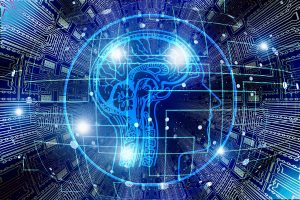The Impact of Artificial Intelligence in Healthcare
Artificial Intelligence is a worldwide phenomenon that has changed the way the world functions and carries out day to day tasks. In many ways, AI has impacted different fields of work, including the healthcare industry. So what is artificial intelligence? AI is the branch of computer science that involves building smart machines that can replicate human intelligence. It also enables machines to learn from experience, and perform tasks just like human beings. The healthcare industry has experienced many changes throughout the years, with the use of modern technology. Advanced technology has allowed humans to gain unpredictable insights that have opened up many new opportunities for healthcare professionals. There are various ways where the impact of artificial intelligence in healthcare has been super beneficial, and I will outline some of them in this post.

Advancements in treatment
Artificial Intelligence enables humans to make diagnoses that may not always be predicted by the naked eye. For example, IDX-Dr became the first autonomous AI system that was cleared by the FDA to assist with the diagnosis process. It detects signs of diabetic retinopathy in ocular images and proceeds to apply an algorithm that produces a binary diagnosis. Artificial intelligence helps clinicians by being able to detect conditions that can be harmful to a patient’s life. In the cardiovascular field of medicine, during the analysis of echocardiograms, almost 20% of the patients are misdiagnosed. This error occurs because coronary artery diseases are difficult to detect. Softwares use AI to generate data points that are not identified by observations, and then this information is used by clinicians to make decisions.
Furthermore, a Beijing based high tech company called Infervision is using artificial intelligence to improve the reading of CT scans and X-rays. It can also detect suspicious nodules and lesions in lung cancer patients, which ultimately allows doctors to provide their patients with an early diagnosis of and treatment. Experts predict that AI may add to the accuracy and precision of radiology tools to replace the need for tissue samples in certain cases. Researchers at Stanford University have also adopted an AI algorithm that can detect and diagnose skin cancer.
Tracking health via smart devices
With the growing popularity of technology, certain smartphones, and gadgets have allowed consumers to keep track of their health on their own. These devices have sensors that collect valuable health-related data. Smartphones, fitness bands, and smartwatches track your heartbeat, sugar levels, breathing, sleep patterns, and also count your steps around the clock. The data collected is analyzed, monitored, and then provides people with basic information about their health. Some of this information is also beneficial to healthcare providers as they can’t always monitor their patients outside of the appointments. Smart devices are commonly used in the form of hospital equipment to monitor the condition of patients and to obtain basic information regarding oxygen levels, blood pressure, breathing patterns or even infections.
Moreover, the increasing quality of smartphone cameras also has also contributed to the impact of artificial intelligence in healthcare. Dermatologists and ophthalmologists are able to take advantage of this feature by examining images that can be analyzed by AI algorithms. Researchers in the UK have established a tool that can identify developmental diseases by analyzing an image of a child’s face. The algorithm can detect specific features, like a child’s eye and nose placement, jawline, or any other feature that can indicate a craniofacial abnormality.
Interactive healthcare bots
The healthcare system has greatly progressed over the past few years to the point where robots can provide patients with what they need. Healthcare bots are found in mobile apps and serve the purpose of engaging with patients to answer their health-related questions. The bots are also able to manage prescribed medicines by suggesting refills or the number of doses. The features of the bot include learning and mimicking human conversations, detecting patient emotions, analyzing barcodes, notes, and images. On top of all that, there will be many more improvements made to AI systems in the future.
Northwell uses chatbots to keep their patient engagement even after they discharge from the hospital. A link to a HIPAA compliant web interface is sent to patients by the chatbot where they are able to search for their specific condition or general discharge concerns. Since a chatbot can check up on a person more than a phone call could, Northwell is able to get four times the discrete patient information.
It is quite evident that artificial intelligence brought a plethora of advancements into the healthcare industry. From detecting harmful diseases/disorders to providing personal care for patients, the impact of artificial intelligence in healthcare has changed the game forever. Although there are many benefits of adopting such technology, there is always some sort of risk attached. For AI to be safe and accurate, the programs must be constantly updated with new scientific methods and discoveries. Doctors and other professionals should not fully rely on AI since the system is not perfect. It is up to healthcare professionals to use their expertise to interpret the data and information provided by technology. But ultimately, artificial intelligence is being used for the greater good and will continue to improve healthcare practices and patient care.

